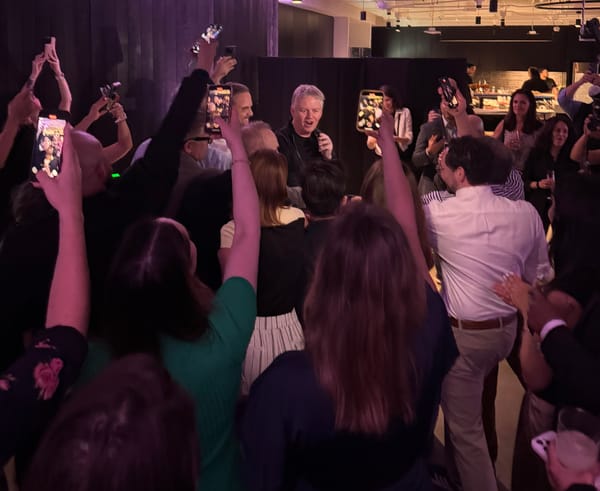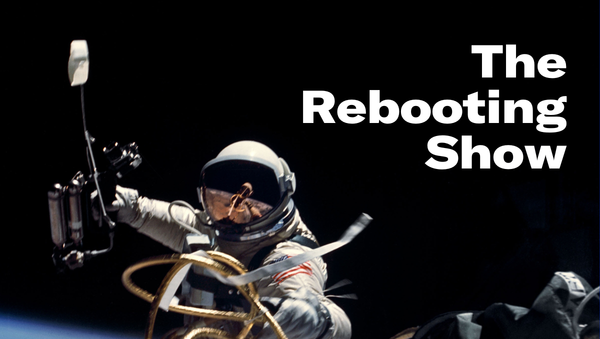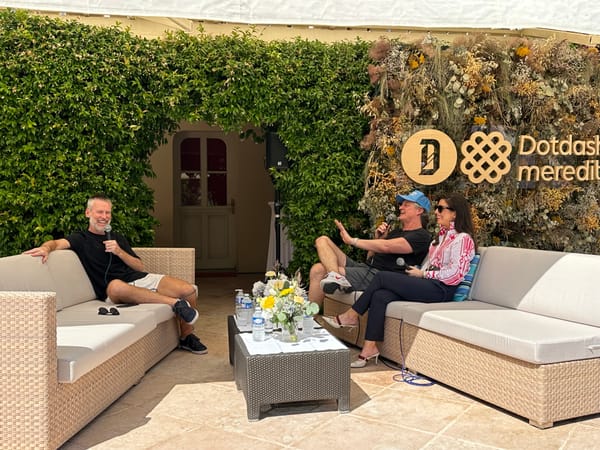Podcasts as ‘nuance media’
Colossus CEO Matt Reustle on depth vs breadth
On The Rebooting Show, I spoke to Matt Reustle, CEO of Colossus, a business-focused podcast network. In Recommendations, some thoughts on the Cheddar fire sale, the housecleaning at Arena and more. Also: The Rebooting is heading to CES (more on our private dinner below); let me know if you’ll be on the ground.
First up, a message from BlueConic.

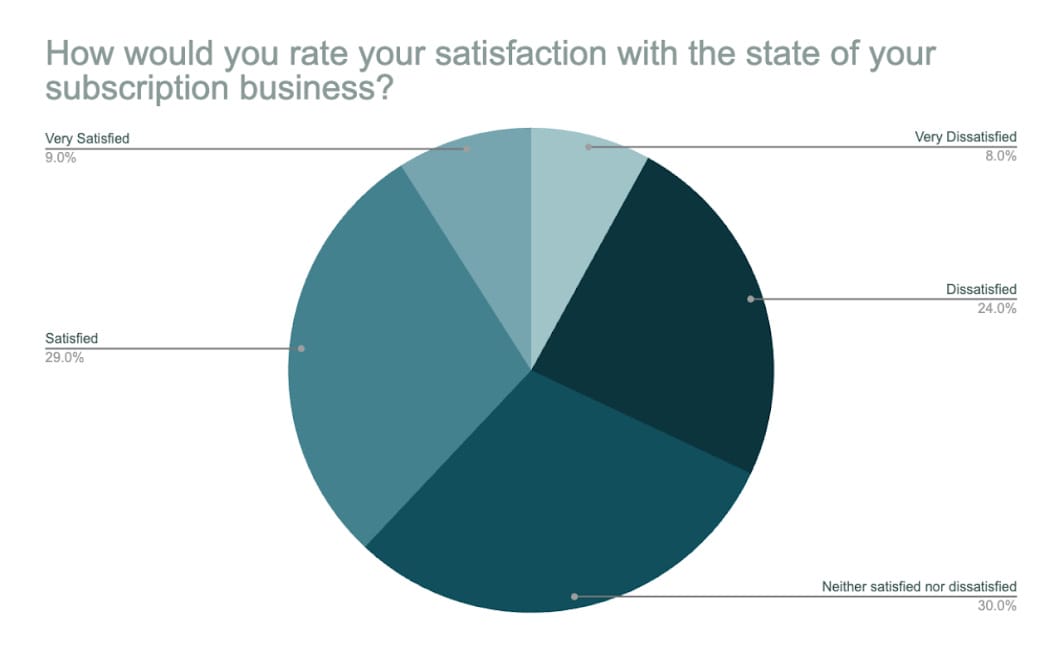
In collaboration with BlueConic, The Rebooting surveyed over 200 publishers to understand the progress they’ve made in implementing audience-first subscriptions strategies. The findings are part of The State of Publisher Subscriptions report. Included in the report:
- The strategic goals publishers identify for their subscriptions programs
- Expected growth rates for 2024
- The biggest challenges publishers face with subscriptions
- How well integrated subscriptions are with other revenue lines
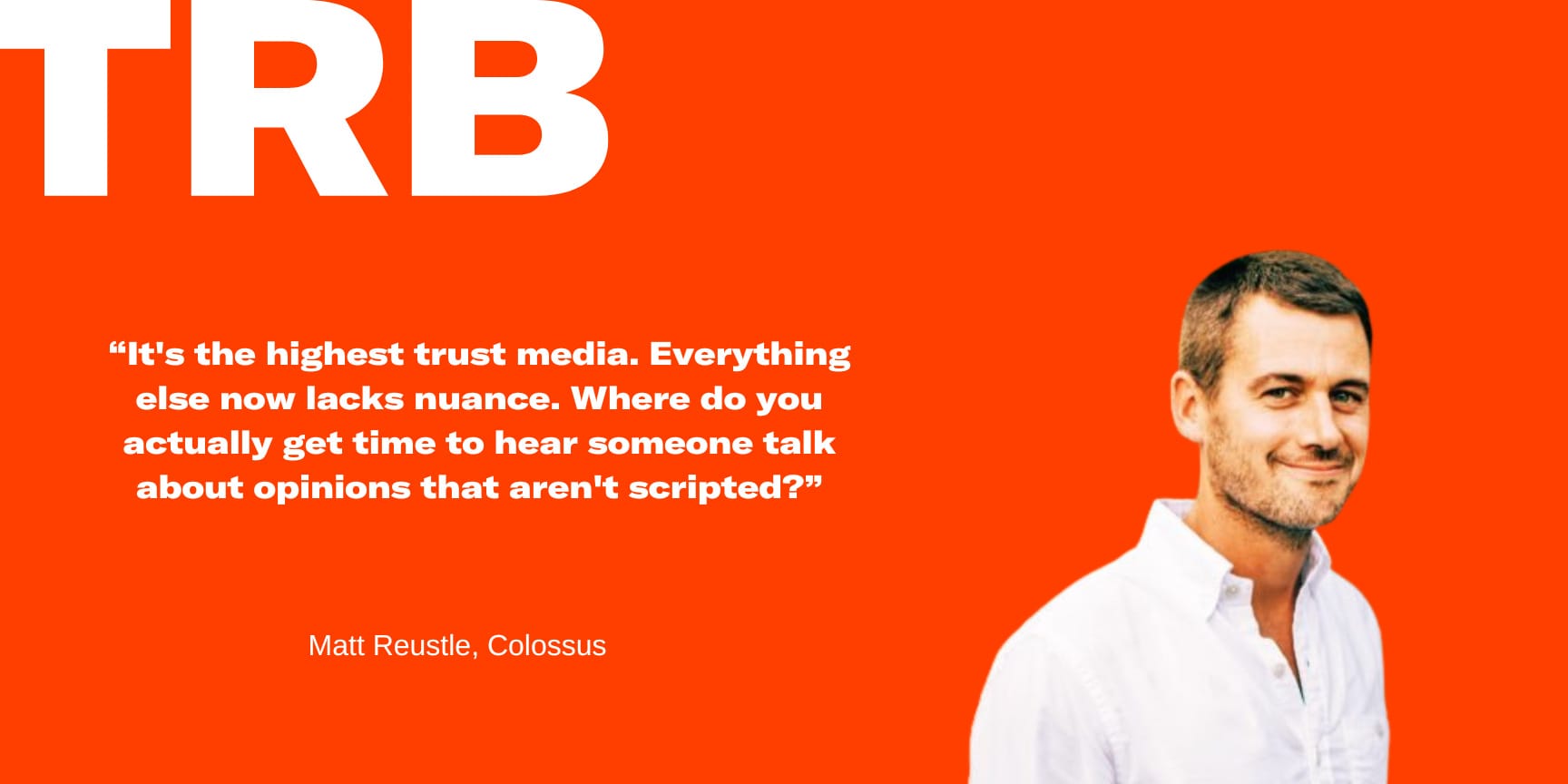
Get The Rebooting Show on Apple, Spotify and other podcast platforms
Normal Gossip is by most measures a breakout podcast. The Defector Media podcast, now in its fifth season, draws 450,000-600,000 downloads, it does live tours that sell out 750-capacity venues.
And yet, as one media executive pointed out at a dinner The Rebooting held recently, Normal Gossip is also a small business. It has 4,000 subscribers to a paid tier and overall podcast revenue, along with events, at Defector amounted to $750,000.
So it goes for podcasting, which over two decades has existed as an anomaly of digital media. Most of the open web was swallowed by giant platforms and micro-targeted advertising. Podcasting has proven resistance to that, as evidenced by Spotify’s stumbles to build a podcasting juggernaut despite every advantage possible. Apple has treated podcasting with the urgency you’d expect a business that’s a rounding error. Ads are hard to target, hard to measure and hard to automate.
Celebrity star power hasn’t much translated. The most famous podcasters are homegrown to the medium. Narrative podcasts, which proliferated after Serial, have proven difficult to make work within the reality of podcasting economics. The beauty of podcasting is the low cost of entry; it’s also a necessity because the revenue ceiling tends to be lower.
Yet for all its failings in efficiency, podcasting has plodded along as arguably one of the most vibrant areas of digital media expression, an antidote to the algorithmic chum that’s clogged search engines and YouTube. The knock on podcasting is discoverability, yet that’s also a way of saying podcasting isn’t ruled by a dominant algorithm. There’s little optimization in podcasting, so creators are more likely to try new things instead of spending most of their time trying to reverse engineer distribution. Normal Gossip itself is a show concept – “juicy, strange, funny, and utterly banal gossip about people you’ll never know and never meet” – is a show concept that’s hard to imagine in other media.
I’ve found over the years of podcasting that it creates a human connection that’s rare. Podcasts trend longer at a time when most media is going in the opposite direction.
That depth of audience engagement doesn’t easily translate to spreadsheets and the scale-focused digital advertising system, but I’d argue it has more enduring value than the fleeting impressions that have propped up much of digital media.
The coming tsunami of crap from AI will disproportionately affect text-based content. The inevitable humanist reaction to this onslaught of synthetic content should benefit podcasting, even as it is now in one of its regular down cycles.
On The Rebooting Show this week, I spoke to Matt Reustle, CEO of Colossus, a business-focused podcasting network that’s home to Invest Like the Best, Business Breakdowns and Founders. Matt also hosts a media business podcast I recommend: Making Media.
“To me, it's the highest trust media. Everything else now lacks nuance. There are shorter attention spans. Where do you actually get time to hear someone talk about opinions that aren't scripted? It is a proper back and forth conversation, not just a bunch of us talking at one another on Twitter.”
We spoke about why podcasts excel at nuance, the business models underpinning the business, and why subscriptions haven’t yet become as widespread in podcasts as other digital media formats.
Recommendations
Cheddar fire sale. There are two ways to look at the rise of Cheddar. One is Jon Steinberg did a masterful job of relentlessly willing Cheddar into existence and a maniacal focus on cutting distribution deals everywhere from nail salons to gas pumps. He also got the timing right, selling to cable operator Altice for $200 million in 2019. The big exit stood in contrast to BuzzFeed, where Jon was on the side of selling to Disney for 10x BuzzFeed’s current market cap. Always know the top. The other way to look at it: Cheddar never truly had a loyal audience and Altice clearly had no idea what to do with it, as evidenced by its “advanced talks” to unload Cheddar to a PE firm for no money and a coupon on a future transaction in the form of an earnout. This is a rough market. (CNBC)
SI’s new owner cleans house. Speaking of two ways of viewing a story, Sports Illustrated's new owner, Five-Hour Energy founder Manoj Bharga has continued executive bloodletting by taking out Arena Group CEO Ross Levinsohn. This follows a pair of top executive firings. All this comes in the wake of one of the first mini-scandals of the AI era when SI used outsourced commerce content shop AdVon to publish pages with AI-generated content and fake author profiles. The obvious conclusion is to draw a straight line, but the reality of business is a crisis is a terrible opportunity to waste. It can provide cover for a new owner to unload a bunch of expensive execs with his own people. New owners of underperforming assets by rule aren’t going to have a high regard for the existing management team (or PowerPoint for that matter). The press release using “termination” in the headline is a sign that not all was well. Bhargava is now interim CEO – and I would highly recommend against walking him through a deck. (Futurism)
Upday’s pivot to AI. Axel Springer poured a lot of resources into Upday, a global news aggregation app it launched in 2016 when news aggregators like Circa were having a moment. The twist was Upday had distribution baked in with a deal to come pre-installed on Samsung phones. Springer is pulling the plug on this vision, shifting instead to – surprise! – AI. That means gutting the service of many of the humans. Sounds more efficient, but I have yet to understand how these pivots to AI are creating better products. Upday had six years to figure out product-market fit; how can applying AI get that done? (Reuters)
Media’s annus horriblis. The team at MediaVoices is out with their annual Media Moments report, a reliable roundup of the big themes of the year and a look ahead to storylines of 2024. Of note: A growing focus on battling churn in subscriptions vs racking up big numbers of subscribers through intro offers. (MediaVoices)
The Humanist Renaissance: “My sense is that culture in the next few years will involve scoping out this Humanist Renaissance. I harp on and on about “conventions,” but they’re key to our humanist revival: The most human part of humanity is not our animal instincts nor our computer-like rationality, but our mutual social creation of meanings and values around arbitrary choices.” (Culture:)
Media always goes first. A general rule of thumb for disruptive technologies is that the media business goes first. That’s the case with AI. The 2024 Awards Trend Report digs into the promises and anxieties of AI across productivity, personalization, imagination and social impact. (The Webby Awards)
Thanks for reading. I have another couple issues of the year before taking a bit of time off to recharge for 2024.
I’m starting the year off by heading to Las Vegas for CES. The Rebooting is partnering with Outbrain and Adelaide to put on a private dinner there on Thursday, Jan 11. We are getting together a group of agency, brand and publishing executives to discuss the outlook for the media business in 2024. Send me a note by hitting reply if you’re interested in joining. We have limited capacity, and the dinner is limited to brand, agency and publishing executives.

